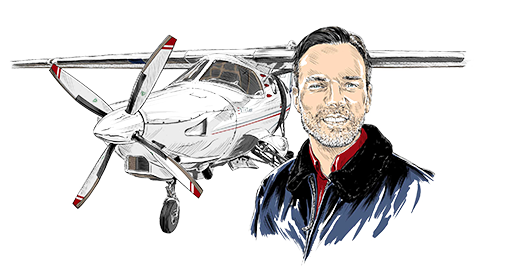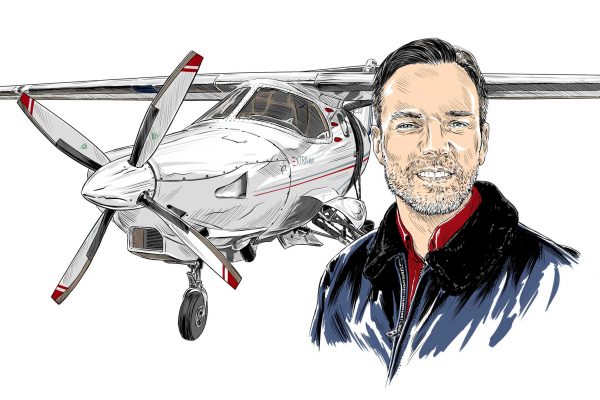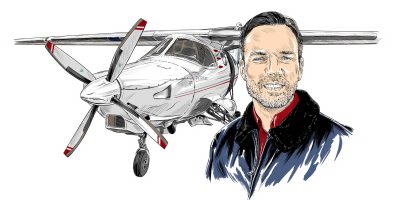One piece of personal admin I recently dealt with was applying for a UK Part-FCL licence on the basis of holding an EASA one. I was a bit late to the party compared to some, but with the ‘paperwork only’ option expiring at the end of the year (which inevitably will pass in the proverbial flash), let’s have a look this process and some of the remaining loose ends of Brexit.
Flying EASA registered aircraft
On 6 April 2022, Skywise reminded us that UK licence holders have not had the privilege to fly an aircraft registered in an EASA Member State since January 2021 (the end of the Brexit ‘transition’ period). I am not sure why this reminder was deemed necessary more than a year on, but just in case anyone was in doubt, if you hold a UK licence and wish to obtain an EASA licence or validation, this must now be done through the EASA 3rd country licence conversion process. It is essentially the same as it would be for converting a foreign licence to a UK one and involves taking the relevant licence skill test, some ground exams (in the case of the PPL, Air Law and Human Factors) and then applying through an EASA Member State.
Ending of EASA licences on G-reg
A more relevant reminder from earlier in the year was that by the end of 2022, EASA licences will no longer be valid for flying UK registered aircraft. This is currently possible under the CAP2017 general validation. Note that CAP2017 only ever applied to EASA licences that were issued prior to 1 January 2021 – those issued since do not have any automatic privileges on UK registered aircraft. After the end of 2022, a UK issued licence or validation will always be required to fly a UK registered aircraft. The only exception being that the Air Navigation Order still contains a general validation for foreign licence holders to fly UK registered non-part-21 aircraft (ie mostly vintage, amateur builds and microlights) privately and without formality.
Obtaining a UK licence
Prior to the end of the Brexit transition process (1st Jan 2021), a number of people in the UK transferred their state of licence issue to another EASA member state. The administrative process for EASA licence holders to now obtain a UK Part-FCL licence has been with us for around a year. It is open to anyone who holds an EASA licence that was valid before 1st January 2021, although I did not examine whether there was any difference in requirements depending on whether a UK EASA licence was held in the past, although it seems not. For EASA licences issued from 1st January 2021 onwards, the normal 3rd country conversion requirements apply.
In 2021 quite a small proportion of these applications were processed, but this will hopefully pick up as we continue towards the expiry of the CAP2017 general validation. It appears the application process will close at the same time as CAP2017 expires. I hold an Irish EASA licence and previously had a UK EASA one, so had a go at this ‘returners’ process. It is generally straightforward – I won’t repeat the contents of the CAA website, but just share a few observations.
It requires a ‘certified copy’ of the existing EASA licence document. Note that the list of acceptable professions to certify copies has recently been expanded and this may help GA pilots who are not in frequent contact with examiners or ATOs. A copy of an identification document is also required, but this can now be submitted as a ‘selfie’ showing both face and document identity page.
One concern I had was what happens if a rating expires or is revalidated/renewed while the application is still in progress. Guidance from the CAA suggests that updated evidence of ratings held can be submitted, avoiding the rating being endorsed on the UK licence as expired. If your non-UK medical is valid and all records can be retrieved, it should be possible to obtain a UK medical without another examination, although I have heard a few stories of record gaps causing issues.
After rounding up my non-UK medical records and submitting form SRG1217, the Cellma system issued me with an equivalent UK medical certificate without further query. It does not appear to matter whether the medical or licence application is submitted first, but I suggest it makes sense to do the medical first, so that the absence of a medical does not hold up issuing the licence. If obtaining your non-UK medical records is a problem, a UK medical from an AME is obviously an option and would be considered a renewal (rather than initial) if you are within five years of your last UK medical. It is now a requirement for all applicants for UK medical certificates to be registered on Cellma before a medical is issued.
The Cellma medical system is accessed through the CAA ‘Customer Portal’. It is possible to register for and apply for the licence through eLicensing, which is also accessed through the Portal. The online form SRG2158 can be used if eLicensing does not work for some reason – applicants without any UK licensing history might find that option more straightforward. One thing that appeared to help was knowing my old CAA reference number, although it is not a requirement to have one, I suspect it will speed up the process.
Click here for more info





